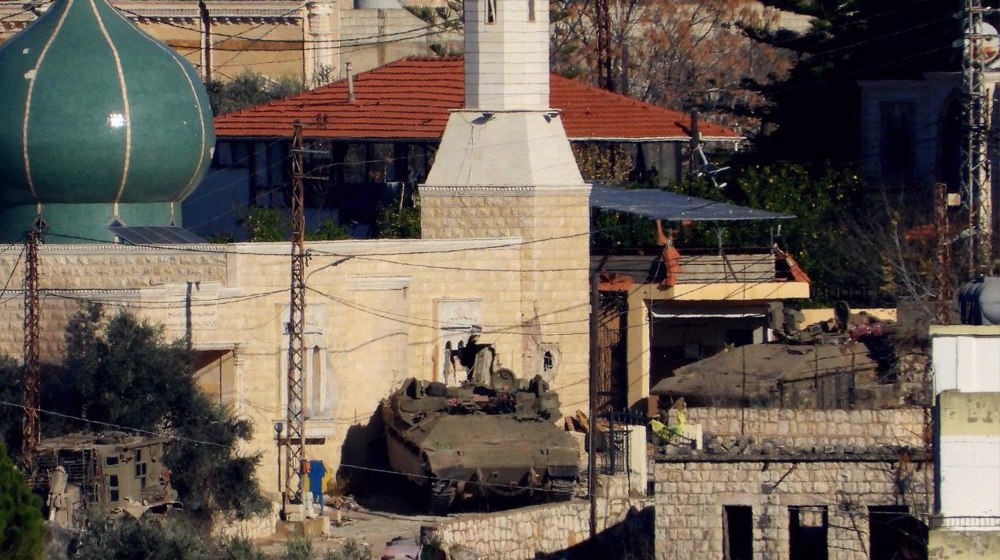Huge blaze erupts at Beirut port weeks after massive blast
A large fire has erupted at Beirut port, engulfing parts of the Lebanese capital, which is still reeling from the devastating dockside massive blast last month.
The blaze began in the shattered duty free zone of the port, prompting some residents to flee as soot and ash fell on vehicles and buildings across parts of the capital on Thursday.
A military source said it appeared to have started when cooking oil caught fire and spread to stores of tires. Army helicopters dropped water on the fire, as firefighters battled the blaze on the ground.
Live television footage showed flames licking up near a pile of tires in a warehouse ruined by last month's explosion.
Firefighters were shown dousing the port fire surrounded by mangled remains of warehouses destroyed in last month's explosion, which was reportedly caused by a store of ammonium nitrate that had been kept in poor condition at the port for years.
Michel Najjar, public works minister in the outgoing government, told Lebanon's MTV that the fire had been brought under control.
There were no immediate reports of injuries but the blaze strained nerves already on edge in a nation grappling with a deep economic crisis and still traumatized by last month's explosion which followed a port fire.
"For sure we were scared, it's only been a month since the explosion that destroyed Beirut. We saw the same thing happening again," media outlets quoted 53-year-old Andre Muarbes as saying.

Majed Hassanein, 49, another citizen said, "I am forced to get them out of Beirut from the smoke and the fire that is happening at the port again."
His son, he said, was still suffering shock from the blast that ruined a swathe of capital near the port.
The August 4 explosion killed about 190 people, wounded thousands and left some 300,000 temporarily homeless. It destroyed Beirut port and a large swathe of the city.
The World Bank recently said the devastating blast had inflicted $8.1 billion in damage and economic loss on the cash-strapped Arab country.
Beirut explosion has left Lebanon’s economy, which is already struggling amidst multiple crises, including the breakdown of its banking system, spiraling inflation and coronavirus pandemic, in tatters.

The massive blast has fueled popular anger in a country already struggling with a major economic crisis.
Lebanon's government subsequently stepped down as previous Prime Minister Hassan Diab blamed endemic corruption for the catastrophe.
Lebanon's new Prime Minister Mustapha Adib has vowed to swiftly launch a reformist government to address the acute economic and political crisis in the country.
‘All wars have rules. All of those rules have been broken’ by Israel
VIDEO | Report flags India’s violation of rights of Rohingya detainees
Turkey's foreign minister meets Syria's de facto leader in Damascus
'Next to impossible' to rescue patients from Gaza's Kamal Adwan Hospital: Director
VIDEO | Vietnam current prosperity
Report blames gasoil exports for shortage at Iranian power plants
VIDEO | Hind Rajab Foundation names Israeli war criminals vacationing after Gaza genocide
VIDEO | Australians rally for Gaza ahead of Christmas festivities









 This makes it easy to access the Press TV website
This makes it easy to access the Press TV website